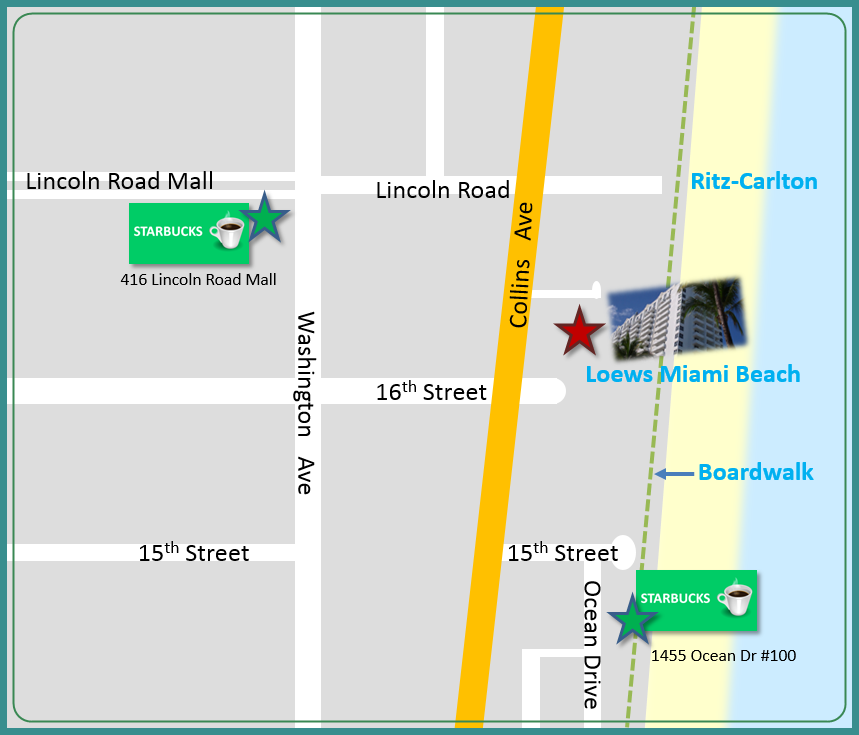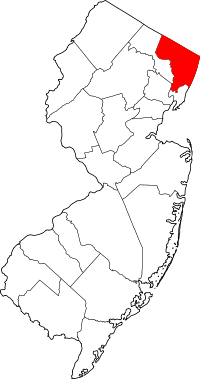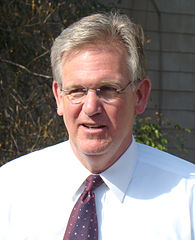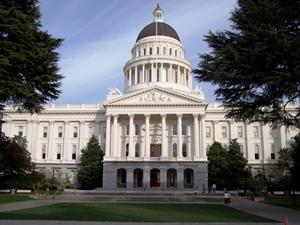February 27, 2014 •
Why I Am Excited to Attend the National PAC Conference
Hello, I am Melissa Coultas, Marketing Manager at State and Federal Communications. I will be part of our team leaving for Miami Beach on Sunday to attend the 2014 National PAC Conference. Here is why I am excited to be […]
Hello, I am Melissa Coultas, Marketing Manager at State and Federal Communications. I will be part of our team leaving for Miami Beach on Sunday to attend the 2014 National PAC Conference. Here is why I am excited to be there:
State and Federal Communications is hosting a Pre-Conference Luncheon on Monday, March 3, at 11:30 a.m. During lunch you can tour our new website and find out more about our various government compliance services. Additionally, our very own Nola Werren, compliance expert with State and Federal Communications for 17 years, will be on-hand to answer any of your questions.
We are giving away a $25 Starbucks gift card to all attendees. So, lunch and coffee are on us in Miami.
See you there!
February 26, 2014 •
Experts, Lunch, and $25 to Starbucks
The Public Affairs Council’s National PAC Conference is just a few days away. If you are attending, we would like to invite you to the State and Federal Communications Pre-Conference Luncheon. We are offering a $25 Starbucks gift card […]
The Public Affairs Council’s National PAC Conference is just a few days away. If you are attending, we would like to invite you to the State and Federal Communications Pre-Conference Luncheon.
We are offering a $25 Starbucks gift card to all attendees. So, coffee is on us in Miami!
Starbucks is close to the Loews Hotel. Take a look:

The luncheon runs from 11:30 a.m. to 1:30 p.m., but we don’t expect you to come for all 2 hours; just stop by and say hello. During lunch you can tour our new website and find out more about our various government compliance services. Additionally, our very own Nola Werren, compliance expert with State and Federal Communications for 17 years, will be on-hand to answer any of your questions.
Hope to see you there!
February 25, 2014 •
Philadelphia Gift Ordinance Advances Out of Committee
A proposed ordinance setting a dollar limit for gifts has advanced out of committee. On February 24, the City Council’s Committee on Law and Government voted to submit the bill for Council action. The proposed ordinance prohibits gifts exceeding $99 […]

A proposed ordinance setting a dollar limit for gifts has advanced out of committee. On February 24, the City Council’s Committee on Law and Government voted to submit the bill for Council action.
The proposed ordinance prohibits gifts exceeding $99 per calendar year to any city officials or employees, and bans all cash gifts.
The ordinance could pass as early as next week.
February 25, 2014 •
Chicago City Council Approves Contractor Corrupt Activity Ordinance
The Chicago City Council approved an ordinance introduced by Mayor Emanuel requiring every city contractor to report corrupt activity. The ordinance requires city contractors to notify the city’s inspector general of bribery, theft, forgery, perjury, and fraud they are aware […]

The Chicago City Council approved an ordinance introduced by Mayor Emanuel requiring every city contractor to report corrupt activity.
The ordinance requires city contractors to notify the city’s inspector general of bribery, theft, forgery, perjury, and fraud they are aware were committed against the city. Knowingly failing to report such activity is a violation of the ordinance.
The ordinance becomes effective on March 5, 2014.
February 25, 2014 •
Bergen County, NJ Reforms Pay-to-Play
By a vote of 6-1, the Bergen County Board of Freeholders has, for the second time in less than a year, reformed the county’s pay-to-play laws. Essentially reversing the May 2013 bill, Monday’s resolution lowers the allowed contribution from no-bid […]

By a vote of 6-1, the Bergen County Board of Freeholders has, for the second time in less than a year, reformed the county’s pay-to-play laws.
Essentially reversing the May 2013 bill, Monday’s resolution lowers the allowed contribution from no-bid county contractors from $5,200 to $2,000.
Freeholder John Felice, the only individual to vote against the bill, worries it may result in only wealthy citizens running for office.
February 25, 2014 •
Nola Werren Answers the Question, “Why Do We Attend PAC?”
Hello, I am Nola Werren, Client Specialist at State and Federal Communications. I am excited to be attending the 2014 National PAC Conference; in fact, I am a regular attendee! Take a look at this video so I can […]
Hello, I am Nola Werren, Client Specialist at State and Federal Communications. I am excited to be attending the 2014 National PAC Conference; in fact, I am a regular attendee! Take a look at this video so I can share with you why I think it is a superb event:
State and Federal Communications is hosting a Pre-Conference Luncheon on Monday, March 3, at 11:30 a.m. featuring Nola Werren, our compliance expert of 17 years, in an “Ask the Expert” session.
Bring your questions to Miami. Nola will answer them!
February 24, 2014 •
US Supreme Court Ruling on Aggregate Limits of Political Contributions May be Coming Soon
A United States Supreme Court ruling deciding the constitutionally of aggregate limits on federal campaign contributions may be issued as early as this week. The case, McCutcheon v. Federal Election Commission, seeks to allow Shaun McCutcheon to make political contributions […]

A United States Supreme Court ruling deciding the constitutionally of aggregate limits on federal campaign contributions may be issued as early as this week.
The case, McCutcheon v. Federal Election Commission, seeks to allow Shaun McCutcheon to make political contributions to several federal candidates exceeding the two-year aggregate limit set in 2 U.S.C §441a(a)(3)(A). The plaintiff argues the limit is unconstitutional because it violates a citizen’s right to speak and to associate with not just any candidate, but every candidate of his choosing.
The Supreme Court decided to grant a review of the case in February 2013 and oral arguments were made on October 8, 2013.
Photo of the United States Supreme Court Building courtesy of UpStateNYer on Wikimedia Commons.
February 24, 2014 •
Missouri Governor Nixon Prevails in Special Election Lawsuit
A Missouri judge recently denied a request to compel Gov. Jay Nixon to set special legislative elections. County Circuit Judge Dan Green issued a one-sentence written opinion but provided no reasoning for the ruling. After the lawsuit was filed in […]

A Missouri judge recently denied a request to compel Gov. Jay Nixon to set special legislative elections. County Circuit Judge Dan Green issued a one-sentence written opinion but provided no reasoning for the ruling. After the lawsuit was filed in January, Nixon set special elections to fill three of the four vacancies. He has not called an election to fill the seat vacated by Sen. Ryan McKenna.
McKenna left office in December after being appointed by Nixon to serve as Labor Department Director.
Photo of Gov. Jay Nixon courtesy of Bernard Pollack on Wikimedia Commons.
February 21, 2014 •
California Campaign Disclosure Bills Closer to Passing
Lawmakers approved a pair of bills to strengthen the authority of the Fair Political Practices Commission (FPPC) and require political nonprofits to reveal their donors. The Assembly approved Senate Bill 27, requiring tax-exempt nonprofits actively involved in elections to comply […]

Lawmakers approved a pair of bills to strengthen the authority of the Fair Political Practices Commission (FPPC) and require political nonprofits to reveal their donors. The Assembly approved Senate Bill 27, requiring tax-exempt nonprofits actively involved in elections to comply with campaign finance reporting requirements.
The bill also requires campaign committees raising more than $1 million to maintain an accurate list of the top 10 contributors of $10,000 or more. Those lists would be placed on the FPPC website before elections.
The Senate approved Assembly Bill 800 to give the FPPC more enforcement powers including the ability to audit campaign reports before elections and for two years after elections. Both bills return to their original house for votes on amendments.
If signed by Gov. Jerry Brown, the changes would be effective July 1, 2014.
Photo of the California State Capitol courtesy of Sascha Brückon Wikimedia Commons.
February 21, 2014 •
Proud to Be a Sponsor of the National PAC Conference!
State and Federal Communications is excited to be a supporter of the Public Affairs Council’s National PAC Conference. We have a team of four attending this great event. More than this, we are sponsoring the Conference Wi-Fi and the […]
State and Federal Communications is excited to be a supporter of the Public Affairs Council’s National PAC Conference. We have a team of four attending this great event.
More than this, we are sponsoring the Conference Wi-Fi and the Wednesday Networking Breakfast.
Why do we sponsor, you ask? Here is State and Federal Communications President and CEO Elizabeth Bartz to explain:
If you are attending the conference, be sure to join us on Monday, March 3, for our Pre-Conference Luncheon and engage with our experts to see if you can safely say, “I comply!” Our very own compliance expert, Nola Werren, will be on-hand to answer any of your questions. Lunch will be on us and we are also giving away a $25 Starbucks gift card to all attendees!
February 21, 2014 •
New Mexico Legislature Adjourns
The Legislature adjourned sine die on Thursday, February 20, 2014. A bill to expand revolving door restrictions passed the House, but did not move out of the Senate Rules Committee. Gov. Susana Martinez has until March 12 to act on […]
 The Legislature adjourned sine die on Thursday, February 20, 2014.
The Legislature adjourned sine die on Thursday, February 20, 2014.
A bill to expand revolving door restrictions passed the House, but did not move out of the Senate Rules Committee.
Gov. Susana Martinez has until March 12 to act on legislation. Any bill failing to reach her desk is now dead.
February 21, 2014 •
News You Can Use Digest – February 21, 2014
National: Last Call for State Parties? Politico – Byron Tau | Published: 2/16/2014 State party officials across the country say the increase in money going to super PACs, nonprofits, and presidential campaigns has made fundraising more difficult. […]

National:
Politico – Byron Tau | Published: 2/16/2014
State party officials across the country say the increase in money going to super PACs, nonprofits, and presidential campaigns has made fundraising more difficult. Some of those outside groups are starting to take over the traditional local roles state parties play, spending big on voter contact and outreach operations. The effect is that candidates can be more beholden to national organizations or single-issue groups rather than state party leaders.
Federal:
A Wave of Capitol Hill Retirements May Force Some Lobbyists to Rebrand Themselves
Washington Post – Holly Yeager | Published: 2/17/2014
The retirements of several powerful members of Congress are affecting former aides that have moved to K Street. Across a variety of areas, the departures – more than two dozen at last count – are prompting former Capitol Hill staffers whose biographies boast of their high-level connections to try to reassure their lobbying clients that they bring more to the job than links with their old bosses.
From the States and Municipalities:
California – Ex-SF Supervisor Yaki Heads off Suit, Pays $75K
San Francisco Chronicle – John Coté | Published: 2/20/2014
Former San Francisco Supervisor Michael Yaki agreed to pay $75,000 to settle a lawsuit in which the city alleged he was an unregistered lobbyist who broke the municipal lobbying law “in every way.” The proposed settlement would be the largest payment in state history to resolve allegations of unreported lobbying. Yaki also must register retroactive to 2012 and report all of his contacts with city officials from that point forward.
California – San Francisco 49ers Drop Embattled Lobbyist Kevin Sloat
San Louis Obispo Tribune – Laurel Rosenhall and Christopher Cadelago (Sacramento Bee) | Published: 2/14/2014
The San Francisco 49ers fired their Sacramento lobbying firm, Sloat Higgins Jensen and Associates, after the company was fined $133,500 by the California Fair Political Practices Commission for violating the state’s lobbying laws. Kevin Sloat acknowledged hosting elaborate fundraising parties for nearly 40 politicians, providing liquor, cigars, and other hospitality that amounted to campaign contributions that are prohibited from lobbyists.
Florida – Should David Beckham Have Registered as a Miami-Dade County Hall Lobbyist?
Miami Herald – Patricia Mazzei | Published: 2/14/2014
In June, during his early days exploring Miami as a location for his expansion Major League Soccer franchise, David Beckham and his investors had meetings with local officials. Now, Miami-Dade’s ethics commission is examining whether Beckham and his partners broke any rules requiring lobbyists to register with county government before making a pitch to public officials.
Louisiana – David Vitter’s Super PAC Challenges Louisiana’s Campaign Contribution Limits
New Orleans Times Picayune – Julia O’Donohue | Published: 2/18/2014
A super PAC set up to support U.S. Sen. David Vitter and his 2015 gubernatorial run is asking a federal court to rule Louisiana’s cap on donations to PACs unconstitutional. The Fund for Louisiana’s Future argues the state is restricting political speech by imposing a contribution limit on PACs of $100,000 per four-year election cycle from individuals, corporations, and unions. It wants the court to make a decision before April 5, when the next round of Louisiana’s local and state elections take place.
New Jersey – Trenton Mayor Tony Mack May Not Be Leaving Office Anytime Soon
NJ.com – Alex Zdan and Jenna Pizzi | Published: 2/16/2014
Trenton Mayor Tony Mack has refused to step down after he was found guilty February 7 on corruption charges. His conviction in a federal court does not trigger his automatic removal from office; without a resignation, Mack will remain mayor until state prosecutors can get a judge to sign off on an order of forfeiture. Removal after a conviction in state court is automatic, but not if the official is tried by federal prosecutors as Mack was.
New York – JCOPE Returns to Waivers
Albany Times Union – Casey Seiler | Published: 2/18/2014
At a recent meeting, members of the Joint Commission on Public Ethics debated exemptions to rules that require the disclosure of donors by nonprofit groups that engage in lobbying. The controversy over the exemptions began last summer, when it was revealed the state arm of the pro-choice group NARAL had been granted an exemption, prompting Republicans to complain that the panel had created a secret path for political giving.
North Carolina – Duke’s Giving Favored the GOP as Lawsuits Threatened, Watchdog Group Says
Raleigh News & Observer – Bruse Henderson | Published: 2/14/2014
North Carolina Gov. Pat McCrory denied he had any talks with Duke Energy executives or lobbyists about his administration’s now scuttled deal to settle environmental violations at two of the company’s coal ash dumps. McCrory worked at Duke 28 years before retiring to make his first run for governor in 2008. On a state disclosure form, McCrory last year indicated his investment portfolio includes holdings of Duke stock valued in excess of $10,000, though he is not obligated to disclose the specific amount.
Salem Statesman Journal – Hannah Hoffman | Published: 2/19/2014
The Oregon secretary of state’s office shut down most its public online systems after detecting an intrusion into its website. Secretary of State Kate Brown is waiving fines for missing a campaign finance reporting deadline while ORESTAR remains down.
South Carolina – SC Poised to Elect First Black Candidate to Statewide Office
The State – Adam Beam | Published: 2/18/2014
The last time South Carolinians elected an African-American to statewide office was 1872, when Richard Howell Gleaves was elected the state’s second – and last – black lieutenant governor. The black community’s political influence was squashed in 1895 when then-Gov. Ben Tillman rewrote the state constitution, which is still in place today, to virtually eliminate all black influence in state politics. Now, 142 years later, that influence appears to be returning, albeit it in small steps.
Vermont – No Second Bite at Campaign Finance Limits
Rutland Herald – Neal Goswami (Vermont Press Bureau) | Published: 2/14/2014
The Vermont House defeated an attempt by one member to delay implementation of the state’s new campaign finance law until 2019. Rep. Cynthia Browning tried to add the delay as an amendment to a bill making a technical correction to the campaign finance law signed by Gov. Peter Shumlin in January. Browning and other critics have charged it did too little to clamp down on the influence of wealthy political donors.
Wisconsin – Scott Walker, Eyeing 2016, Faces Fallout from Probes as Ex-Aide’s E-mails Are Released
Washington Post – Rosalind Helderman | Published: 2/20/2014
Thousands of recently unsealed documents link Wisconsin Gov. Scott Walker to a secret email system used in his office that would avoid public scrutiny when he was Milwaukee County executive. The documents show just how intertwined Walker’s campaign operation was with his taxpayer-paid county staff in the months leading to the November 2010 election. It is against state law for public employees to work for political parties and campaigns while being paid by taxpayers to provide government services.
 State and Federal Communications produces a weekly summary of national news, offering more than 80 articles per week focused on ethics, lobbying, and campaign finance.
State and Federal Communications produces a weekly summary of national news, offering more than 80 articles per week focused on ethics, lobbying, and campaign finance.
News You Can Use is a news service provided at no charge only to clients of our online Executive Source Guides, or ALERTS™ consulting clients.
February 19, 2014 •
TX Ethics Advisory Opinion Offers Guidance on Registration Disclosure of Certain Compensation
On February 13, the Texas Ethics Commission issued an advisory opinion concerning the requirements of lobbyists to disclose office holders or candidates compensating or reimbursing the lobbyist for services from political contributions. In Ethics Advisory Opinion No. 515, the […]

On February 13, the Texas Ethics Commission issued an advisory opinion concerning the requirements of lobbyists to disclose office holders or candidates compensating or reimbursing the lobbyist for services from political contributions.
In Ethics Advisory Opinion No. 515, the commission held that while a lobbyist must disclose in a registration the full name and address of a candidate or officeholder who uses political contributions to compensate or reimburse the lobbyist, he or she is not required to disclose compensation or reimbursement received by an entity for services rendered by someone other than the lobbyist or a person acting as an agent of the lobbyist.
Lobbyists must disclose the full name and address of a candidate or officeholder who uses political contributions to compensate or reimburse an entity that employs or hires the lobbyist to render services for the candidate or officeholder.
February 19, 2014 •
Ask the Experts – State Ban on Personal Political Contributions by Registered Lobbyists
Q. I am a registered lobbyist and on occasion I use my personal funds to make political contributions, as does my spouse. Are there states that prohibit such activity? A. A lobbyist, simply by virtue of his or her […]

Q. I am a registered lobbyist and on occasion I use my personal funds to make political contributions, as does my spouse. Are there states that prohibit such activity?
A. A lobbyist, simply by virtue of his or her profession, may be prohibited from making personal political contributions.
There are nine states that either prohibit or limit a registered lobbyist’s ability to contribute to state candidates. In most instances, a lobbyist’s ability to contribute to political parties and ballot measure committees remains intact.
Kentucky, North Carolina, and Tennessee impose an outright ban on lobbyists’ contributions. In Connecticut and Massachusetts, there isn’t an outright ban, but instead a monetary limit of $100 and $200, respectively. In Connecticut, the limitation extends to family members of lobbyists.
Perhaps the state most mired in “red tape” is Alaska. A lobbyist may not contribute to a candidate for office in a district outside the lobbyist’s own voting district. This prohibition continues for one year after a lobbyist’s registration or renewed registration date. A lobbyist who contributes to a legislative candidate must file a Lobbyist Report of Contributions to Legislative Candidates (Form 15-5A) within 30 days after making the contribution.
In some states, lobbyists may not contribute to state candidates or officeholders if registered to lobby the candidate’s or officeholder’s agency. Such is the case in California and South Carolina.
Finally, as a registered lobbyist you should be aware there are numerous states that impose a lobbyist ban during the legislative session. Be sure to review the relevant statutes, regulations, and guidelines.
You can directly submit questions for this feature, and we will select those most appropriate and answer them here. Send your questions to: marketing@stateandfed.com.
(We are always available to answer questions from clients that are specific to your needs, and we encourage you to continue to call or e-mail us with questions about your particular company or organization. As always, we will confidentially and directly provide answers or information you need.) Our replies to your questions are not legal advice. Instead, these replies represent our analysis of laws, rules, and regulations.
State and Federal Communications, Inc. provides research and consulting services for government relations professionals on lobbying laws, procurement lobbying laws, political contribution laws in the United States and Canada. Learn more by visiting stateandfed.com.

